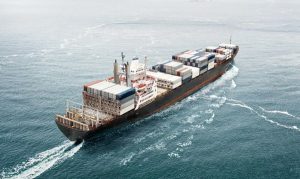Iran has seized an oil tanker in the Strait of Hormuz in the second such incident in the region in a week, as tension with the United States continues, something the Russell Group says could lead to financial stress for the oil and maritime sectors.
The Middle East-based US 5th Fleet and Iranian media confirmed on Wednesday that the naval force of the Islamic Revolutionary Guard Corps (IRGC) stopped a tanker in the waterway. The seizing was done due to suspicion of violation of international law and a “threat to maritime security and global economy”
 Iran seized Advantage Sweet, a Marshall Islands-flagged tanker in the Gulf of Oman that was heading for Houston, under charter by Chevron earlier this week. Iran, however, commented the Turkish-operated, Chinese-owned tanker had collided with an Iranian vessel, leaving several crewmen missing and injured. The tanker, which had about two dozen Indian crew members, had moved through the Strait of Hormuz and fled the scene despite repeated warnings, according to the Iranian authorities.
Iran seized Advantage Sweet, a Marshall Islands-flagged tanker in the Gulf of Oman that was heading for Houston, under charter by Chevron earlier this week. Iran, however, commented the Turkish-operated, Chinese-owned tanker had collided with an Iranian vessel, leaving several crewmen missing and injured. The tanker, which had about two dozen Indian crew members, had moved through the Strait of Hormuz and fled the scene despite repeated warnings, according to the Iranian authorities.
The current tensions in the Strait of Hormuz have been estimated to cause a loss of $227 billion in crude oil exports, impacting many leading economies, including the US, China and India, according to an analysis by Russell Group, a data and analytics company.
The Strait of Hormuz is one of the world’s most valuable shipping lanes, with an annual flow of trade of $685 billion. According to Russell’s analysis, crude oil makes up 69% of the total exports in a year.
Reports suggest this was in retaliation for the US seizure of the Suez Rajan, which was believed to be carrying Iranian oil, which was redirected to the United States. The tensions escalated further, with Iran seizing another tanker, the Niovi, a Panama-flagged tanker that was sailing from Dubai to the UAE port of Fujairah yesterday.
There are fears that any escalation in the Strait of Hormuz, which is home to many Gulf oil-producing nations, could have repercussions for the global economy. Further analysis by Russell shows that the US, China and India would experience some economic damage from any further Iranian escalations in the Strait of Hormuz.
Data suggests that India has the largest exposure, importing an estimated $95 billion in total ship trade, which includes Crude Oil and other commodities, from UAE, Iraq and Saudi Arabia combined. Meanwhile, China and the US import an estimated $19 billion and $17 billion in commodities every year from Saudi Arabia.
Suki Basi, Russell Group MB commented on these figures, “The recent escalation in tensions in the Strait of Hormuz is a worrying sign for all participants in the global maritime, oil and finance supply chain ecosystem. The Strait of Hormuz is a vital conduit for transporting crude oil to the rest of the world and a huge, connected risk in global supply chains. Key event drivers for Connected Risk are the ways in which political, economic, and environmental stability or supply chain, credit and cyber security risks combine to disrupt trade and cause operational and financial loss.”
“Organisations are exposed to Connected Risk when they fail to grasp, or disregard, the multi-dimensional nature of business-to-business relationships where a single event could impact firms and disrupt trade. Understanding this interconnectivity is fundamental to navigating trade in a connected economy and maintaining successful and sustainable business performance,” Basi further added.


